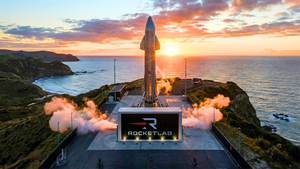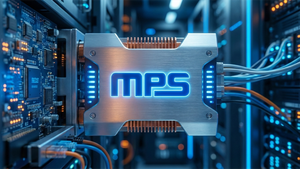 Photo from Unsplash
Photo from Unsplash
Originally Posted On: https://compoundingrxusa.com/blog/nutrition-muscle-growth/
How Nutrition Helps With Muscle Growth
Muscles carry out a wide array of necessary functions, from pumping blood (the heart) to facilitating movement to even giving birth. The importance of the role of muscles in the body cannot be understated, and ensuring your muscles are healthy must be a top priority. Most people don’t consume the nutrients they need for muscle health and growth without putting some thought and planning into their everyday diet. Still, proper nutrition is one of the primary ways to care for your muscles.
If you are looking to build lean muscle and power up your body, going to the gym is not enough. Developing a proper nutrition plan is vital. When muscles are growing, it is important that they are given the necessary means to recover so they are ready for the next workout. What you need is to supplement your workouts with foods that can help your muscles recover, rebuild, and perform their best.
How Do Muscles Grow?
Muscles grow as they are forced to provide resistance against an external force. Whether you are lifting weights, incorporating bodyweight exercise, running, or something else, you will likely require your muscles to resist more weight. As this happens, fibers in the muscle are damaged. The muscle starts to grow, gaining more bulk and strength as the body works to repair these damages by fusing the fibers together.
That’s precisely why one of the most important factors in building muscle is whether you consume the vitamins and nutrients necessary to rebuild your muscles. One of the most recommended nutrients to facilitate this process is proteins. Proteins are made up of amino acids, which act like building blocks for muscle cells. After a workout, the body works to rebuild and repair muscle cells that have been damaged, which is why the consumption of muscle-building blocks in the form of protein is so important.
Of course, other nutrients are important, too. Muscles cannot be expected to grow to the degree you’d like if you only focus on working out and continue to eat a poor diet. Supporting muscle repair with proper nutrition is essential for setting up your body to build muscle in the most healthy way possible.
Muscles need protein to repair and rebuild after a workout, but it doesn’t stop there. There are other essential elements that the body needs to be strong and healthy. Some of these include healthy fats, vitamins, and minerals.
Healthy Fats
Believe it or not, there are certain types of fats that are essential for good health. Two of these, in particular, include monounsaturated and polyunsaturated fats. They are known to be good fats because they increase the body’s levels of high-density lipoprotein, or HDL. HDL helps increase the production of growth hormones. So, when you increase HDL, you increase growth.
When you are in the middle of a workout, your body must draw energy to continue. Initially, you will burn carbohydrates, but in the long run, you will need fats to burn. Fats are what will carry you through the duration your muscles need to grow stronger.
Vitamins
There are numerous vitamins that are helpful to the human body in many ways. When it comes to muscle growth, there is one vitamin in particular to focus on: vitamin B12. Vitamin B12 is essential for producing the red blood cells that are responsible for carrying oxygen to the muscles. Without oxygen, muscles could not perform their duties.
Vitamin D is also responsible for aiding in muscle growth and repair. This can be demonstrated by the fact that one of the most prominent signs of vitamin D deficiency is muscle weakness. Ensuring that your body obtains an appropriate amount of vitamin D can help your muscles have the strength they need to grow, repair, and restore.
Minerals
In addition to vitamins, there are also various minerals that the human body needs in order to function properly. Two of the most important for those involved in high intensity exercise are calcium and iron.
Calcium helps the muscles contract, which is an essential part of any workout. Although it may be possible to obtain enough calcium through certain calcium-rich foods in your diet, calcium supplements can be an easy and efficient way to provide your body with the amount of calcium you need to support your workout habits.
Red blood cells have the job of making sure oxygen gets to all parts of the body that need to be repaired and restored. An increased presence of iron in the body, in turn, increases the production of red blood cells. The more red blood cells you have transporting oxygen to your damaged muscles, the easier it will be for them to recover.
Muscle Building Foods
The essential foods that your body needs in order to grow and repair muscle can be primarily summed up into two categories: healthy proteins and healthy fats. Below are some of the best foods for muscle gain.
Chicken
Meat provides a great deal of support to muscle growth, as it is full of protein. Chicken, in particular, is packed with protein as well as B vitamins that help support muscle growth. It is also a lean meat that is safe for those with high cholesterol.
Salmon
Salmon is a good protein option for building muscle because not only does it contain protein, but it contains plenty of omega-3 fatty acids as well. These fatty acids are responsible for helping your body turn the protein you eat into the energy that your muscles can actually use.
Other Lean Meats
While chicken and salmon are the muscle-building stars, lean meat options such as sirloin steak, ground beef, pork tenderloin, and venison can all contribute to muscle growth. Lean beef, in particular, is rich in creatine, an organic compound that is thought to increase strength and lean muscle mass, and may even aid in muscle recovery.
Greek Yogurt
While both Greek yogurt and regular yogurt can provide carbs and vitamins, Greek yogurt contains double the amount of protein. Opting for Greek yogurt after a workout can also provide a source of calcium for muscle recovery.
Milk
Milk, in general, is good for the body in a variety of ways, but skim milk can help build muscle mass without adding fat. However, whole milk and even soy milk are also solid options, though skim milk appears to build muscle a bit faster. Plus, it’s far less expensive than commercial post-workout drinks.
Beans
Most beans are packed with protein. Some also contain other helpful elements such as fiber, vitamins, magnesium, iron, and more. Soybeans are especially beneficial because they contain several vitamins and minerals, as well as iron.
Eggs
Eggs are high in protein and contain high amounts of an amino acid known as leucine. Leucine is vital in the body’s process of putting protein to use.
Nuts
Nuts, including peanuts, are a wonderful muscle-building food. Nuts contain not only protein but fat and carbohydrates as well. They are also high in calories, making them a good snack option if you are trying to up your caloric intake.
Almonds are especially useful because they are high in protein and vitamin E. Vitamin E has antioxidant properties and is responsible for repairing the cell membranes surrounding muscle tissue while you are exercising, making it a helpful addition to your diet.
Vitamins and Supplements
Achieving and maintaining a level of fitness that ensures you’re growing muscle mass while shedding fat is challenging, and not everyone is able to get all of the nutrients they need to do so through food alone. Adding vitamins and supplements to your routine can make a world of difference when you want to build muscle.
Supplements can help you with everything from easier breathing during a workout to avoiding hunger afterward. They also make it so that not all nutrients have to be ingested in the form of food. Exploring the wide array of supplements available can make your muscle-building process a little easier.
Some supplements that can be particularly helpful include:
Iron
Iron helps to ensure your body is getting an adequate amount of oxygen during a workout.
Iron
Magnesium
Supplementing with magnesium helps to turn all the nutrients you take into energy.
Magnesium
Vitamin A
This vitamin works indirectly towards the health of your muscles by protecting your immune system, ensuring that you are healthy enough to work out consistently.
Vitamin A
Vitamin C
Vitamin C can help your body absorb iron, which in turn helps oxygen flow throughout the body.
Vitamin C
Biotin
Like magnesium, biotin helps your body produce energy.
Biotin
Creatine
Creatine directly helps your muscles grow in mass.
Protein
As mentioned, protein is an essential nutrient for rebuilding muscles after a workout.
How Nutrition Helps With Muscle Growth FAQs
Committing to understanding how muscle growth is intricately connected to your nutritional habits is an important first step to take in your exercise journey. The foods you eat combined with the workouts you do, together, is what will make the changes you wish to see.
What Is the Best Nutrition For Muscle Gain?
What Is the Best Nutrition For Muscle Gain?
The best nutrition for overall muscle gain and physical health is a well-rounded and balanced diet. Three types of foods that should be made a priority if you are trying to build up muscle are proteins, carbs, and fats. Protein is found in an array of foods, primarily meat, eggs, and whey products. Healthy carbs, or carbohydrates, are found in whole grains, beans, fruits, and vegetables. Great sources of fats, specifically monounsaturated and polyunsaturated, can be found in avocados, nuts, and some fish.
Does Nutrition Help Muscles?
Does Nutrition Help Muscles?
Nutrition plays a key role in the process of building muscle. Proteins are the agents that perform the process of muscle repair, which is essentially what actually causes the muscles to grow. If you aren’t eating enough protein to repair the muscles that are being exercised and trained adequately, the repairing process will not be as efficient as it could be. At the same time, your body also needs enough carbohydrates and fats in order to have energy to carry you through your workout. Both of these are essential to provide the strength you need to actually exercise your muscles in a way that will cause them to grow. Having the proper nutritional habits is essential if you want to see progress in muscle growth.
What Nutrient Helps Muscles Grow Strong?
What Nutrient Helps Muscles Grow Strong?
While multiple nutrients are needed in order to properly help your muscles repair and grow, the main nutrient required is protein. Proteins are what build back the muscles that are damaged during exercise, fusing the damaged parts together so that they end up larger than they were. A steady intake of protein-rich foods goes a long way in the muscle-building process.
Does Eating Healthy Make Your Muscles Bigger?
Does Eating Healthy Make Your Muscles Bigger?
Maintaining a diet that is rich in protein greatly impacts the muscle mass that your body will build. Eating healthy in and of itself will not necessarily increase muscle mass, but when a healthy, protein-rich diet is paired with consistent and proper exercise, changes in the size of your muscles will be made. There are also other factors that affect muscle growth, including genetics, hormones, and the types of workouts you do. Everyone’s journey to muscle growth is different and personal, based on an array of variables that are unique to each person.
The Trick to Building Muscle
In reality, there is no one perfect plan for obtaining the muscle growth goals you have. You are a unique individual with a unique body. What works for someone else may not necessarily work for you. The main point is to implement a steady diet full of protein, carbohydrates, and fats. These three elements will work to give you the strength you need to push through those challenging workouts while also helping your body repair your muscles after the fact.
We realize how difficult it can be to obtain adequate amounts of all of the nutrients you need through the foods you eat. If this describes you, it is important to find ways to add these nutrients in another way – ideally with quality supplement options. Compounding Pharmacy of America is proud to offer an array of vitamins and supplements that can help you build and retain muscle mass.
For a full list of the vitamins and nutrient supplements available, visit our online shop.
Resources:
- Zhang, L., Quan, M., Cao, Z-B. (2021). Vitamin D and the Immune System from a Healthy Aging Perspective. Frontiers in Physiology, 12, 660498. https://doi.org/10.3389/fphys.2021.660498
- Harvard Health Publishing. (n.d.). Vitamin D deficiency linked to loss of muscle strength. Harvard Health. Retrieved from https://www.health.harvard.edu/staying-healthy/vitamin-d-deficiency-linked-to-loss-of-muscle-strength
- Sacheck, J. M., & Blumberg, J. B. (1991). Role of vitamin E and oxidative stress in exercise. Nutrition. https://pubmed.ncbi.nlm.nih.gov/1897277/






